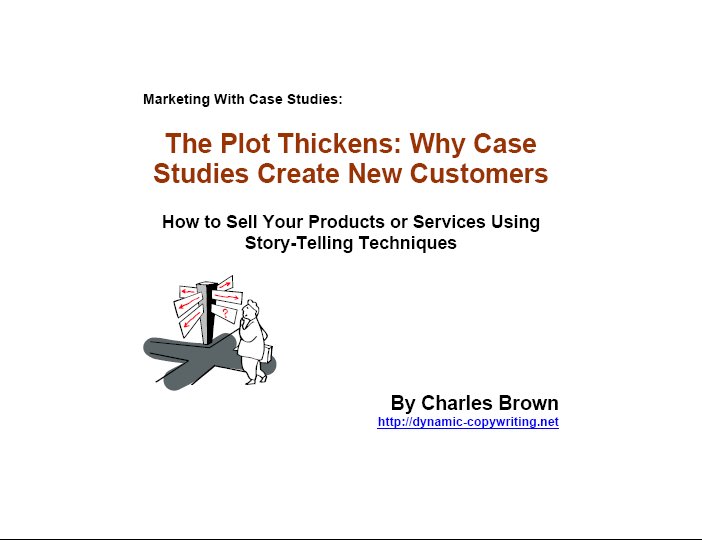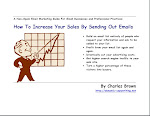Recently I've been studying the methods of efficiency expert, David Allen, the author of Getting Things Done: The Art of Stress-Free Productivity.
(Although the purpose of this article is not about productivity or efficiency, I really do recommend David Allen's methods because they are so dramatically different and more naturally intuitive from any other "time management" or efficiency system I've ever read. If you'd like to read more about Getting Things Done: The Art of Stress-Free Productivity, click this link).
Anyway, Allen really focuses on intuitive methods for getting things done, and he begins by insisting that we start with a clear understanding of the desired outcome before taking on a project.
Some of the ways he recommends forming a clear picture of a desired outcome is to:
· Imagine a wildly successful result. Often we simply set a goal and that is the end of the matter. Allen urges picturing a Spectacular outcome. Imagine beyond what you expect, imagine breaking through any limits, imagine getting beyond-anything-you-could-ever-have-imagined results.
· Ask, "Wouldn't it be great if _______? This simple question is an excellent focusing device for clarifying a desired outcome, because it too pushes the brain to think beyond "reasonable" expectations.
By now of course, you are thinking, "What does this have to do with marketing and copywriting?" The answer is asking these questions is a great way to distinquish between features and benefits.
Why not flip Allen's thinking around and ask these questions from the point of view of your ideal desired customer? This is another way to force yourself to look at what you do and what you offer from inside the mind of the client you are trying to attract.
How often do customers expect to get "wildly successful results." Heck, most of the time they would be satisfied with just meeting what you promised. And how often do they ask, "Wouldn't it be great if ___?" with any thought that someone could actually deliver what they truly want.
Customers, like the rest of us, tend to diminish their own expectations over time. They tend to settle for what they can get because life has taught them that shooting for the stars lands you flat on your face.
But if you can deliver the goods, begin your marketing project by putting yourself inside the mind of your ideal customer and ask, as if you were that customer, what would be a wildly successful result.
Not only will you astonish yourself with what you come up with, you will also astonish your customer.
freelance copywriter, ghost writer, web content writer, lawyer marketing, lawyer advertising, white papers
COPYRIGHT © 2008, Charles Brown
Getting Things Done: The Art of Stress-Free Productivity
Yesterday I sent you to a link on YouTube by Trevor Crooks, an Australian copywriter who had a great illustration on the power of headlines. The link, if you didn't get it, is http://www.youtube.com/watch?v=IO1adJvZneA.
Now to recap, the example used were the actual results from a chiropractor's ads. This chiropractor ran three seperate ads that were the same except that each had a different headline.
Here were the headlines he used:
Free Report: Are you making these mistakes when treating your migraine headaches?
Free Report: "They all laughed when I called a chiropractor...until my migraine headaches went away.
Free Report: "Who else wants Migraine headache relief?"
Notice that all three are formulas for headlines you've probably seen over and over again. There is a reason for this: all of these formulas are decades old and keep getting re-used because they continue to work better than the new headlines we creative geniuses try to come up with.
Now hopefully you have already watched the video so I am not spoiling the surprise for you, but the winning headline, the headline that generated the highest response and got more requests for the free report, was "They all laughed when I called a chiropractor...until my migraine headaches went away.".
I don't know about you, but that wasn't my first choice... or my second either.
The point is, we are not in the business of predicting what buyers will do, we are in the business of testing what they will do and letting them decide what campaigns we run in the future.
We "professionals" think we know what the public wants, but they fool us again and again. You've read me preach on this site against getting to infatuated with our own creativity, but I did it to. I simply thought, "They all laughed when ..." had been done to death and sounded primative.
Testing isn't for the proud, or the fragile ego (I know mine took a hit on this little exercise). But it does show what will make money, and that, in my book, is the name of the game.
freelance copywriter, ghost writer, web content writer, lawyer marketing, lawyer advertising, white papers
COPYRIGHT © 2008, Charles Brown
Labels: headlines, lead generation, marketing research, testing
Once More With Feeling: The Power of Headlines Cannot Be Under-Estimated
0 comments Posted by Charles Brown at Tuesday, April 08, 2008Let's go over this again, "Headlines are the most important part of your advertisement/web content/sales letter or any other marketing communication."
The headline pulls readers into the rest of your piece. It tells them there is something here that may help them and is worth reading.
You knew all that, right? But don't be ashamed if you have wandered off the path and into the dark woods. We've all done it and gotten too caught up in our own creativity. Just don't get lost in those woods. Get back on the path as soon as you can.
There are two other things I want to say about headlines. First, the old tried and true formulas continue to work because they still appeal to buyers' basic needs.
And second, only the market place can determine which headline is most effective. Think of your buyers as voters. You can't tell them how to vote (they are, after all, voting with their money), all you can do is wait to see HOW they vote.
And all this leads me to a colorful copywriter from Australia named Trevor Crook. Take a look at this video on YouTube (http://www.youtube.com/watch?v=IO1adJvZneA) in which he compares three actual headlines used by a chiropractor to generate leads for his practice.
Trevor gives you a chance to choose which of the three headlines you think outsold the others before he reveals the winner. I won't reveal the winning headline for you, but I will say that I didn't guess right either, and I am in this business.
This again goes to show that ONLY THE BUYERS can vote on which headline motivates them most.
As you watch this video, another thing you should notice is how OLD all these headlines sound. They are tired old formulas that have been used over and over and over and over again. Many are nearly a century old, and yet they are still used BECAUSE THEY STILL WORK.
The link again is http://www.youtube.com/watch?v=IO1adJvZneA. Trevor may seem like a character (I'm sure he is one) but he knows his stuff.
COPYRIGHT © 2008, Charles Brown
Labels: copywriting, headlines, lead generation
I am guessing that if I were to ask you to name some of the most successful companies you've ever done business with, both McDonalds and Amazon would be on your list. Now this post is not going to sum up all the reasons both companies are enormously successful, but one thing they both do very well is the add-on sale.
In the old days, I still remember when McDonalds' employees asked if you wanted fries with your hamburger and soft drink order. But now they sell them all together in a Value Meal. It is a package of products that go together and essentialy speeds up the decision-making process for customers.
Amazon also is a top notch add-on seller. On your first visit, when you look at different products they offer, they present you with an array of related products that they suggest. Their system has identified these other products as products other customers, who have an interest in the same product you are looking at, have also bought.
On your second visit, Amazon is already building a database on you and your tastes based upon what products you look at (even if you have not yet bought anything from them). With each visit, they learn more and more about you, not in a sinister Big Brother sort of way, but in a way designed to serve you better AND produce more sales for them.
So here is something to think about. What other products or services can you bundle together for your customers? What else do you offer that solve the same problems or serve the needs of the same customers?
For example, many lawyers offer related services when clients need their wills updated. They may offer living wills, powers of attorney, and other related documents to those clients seeking estate planning.
This is the ultimate win-win. The customer benefits because you are looking after more needs than the obvious ones they came to you about. You benefit because this simple approache generates more revenue for your business.
Think through all of your products or services. What else can you offer with them that will benefit the customer? Can you "bundle" them together in such a way that saves the customer money, but still produces more revenue for you?
I'm guessing it is as easy as asking if they want fries with their order.
COPYRIGHT © 2008, Charles Brown
Labels: lawyer marketing, marketing ideas, rainmaking


